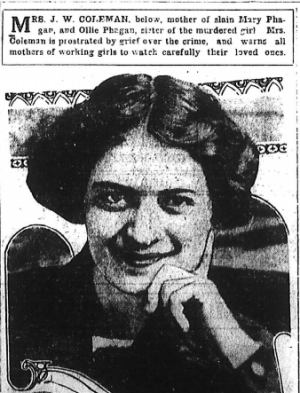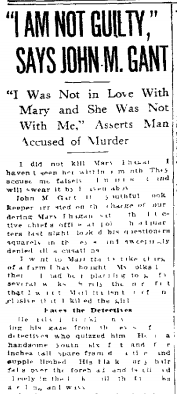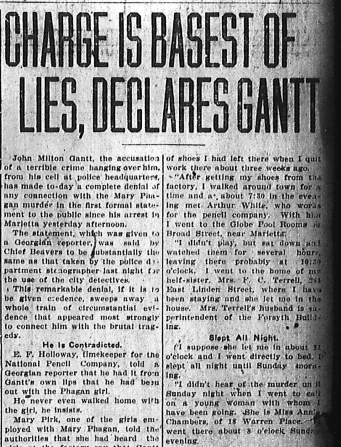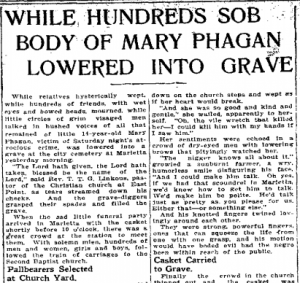 Another in our series of new transcriptions of contemporary articles on the Leo Frank case.
Another in our series of new transcriptions of contemporary articles on the Leo Frank case.
Atlanta Constitution
Wednesday, April 30th, 1913
While relatives hysterically wept, while hundreds of friends, with wet eyes and bowed heads, mourned, while little circles of grim visage men talked in hushed voices of all that remained of little 14-year-old Mary Phagan, victim of Saturday night’s atrocious crime, was lowered into a grave at the city cemetery at Marietta yesterday morning.
“The Lord hath given, the Lord hath taken, blessed be the name of the Lord,” said Rev. T. T. G. Linkous, pastor of the Christian church at East Point, as tears streamed down his cheeks. And the grave-diggers grasped their spades and filled the grave.
When the sad little funeral party arrived in Marietta with the casket shortly before 10 o’clock, there was a great crowd at the station to meet them. With solemn mien, hundreds of men and women, girls and boys, followed the train of carriages to the Second Baptist church. Continue Reading →

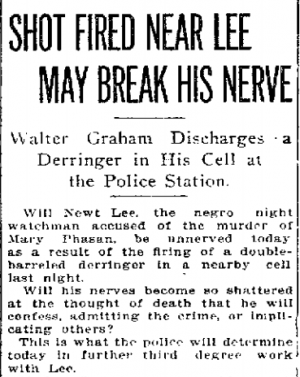
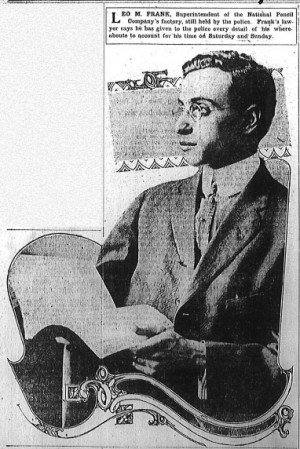
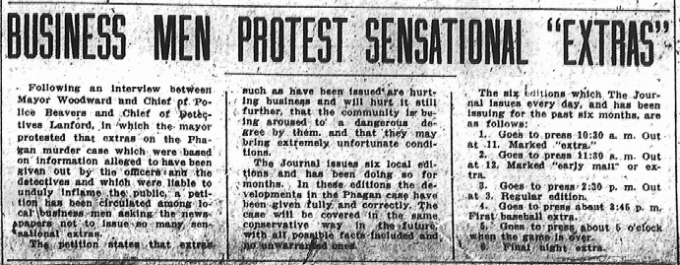
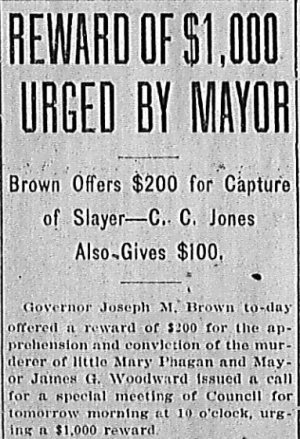
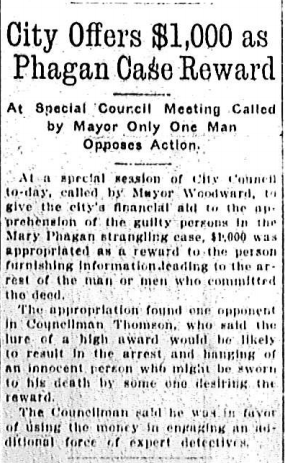
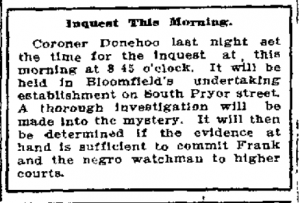

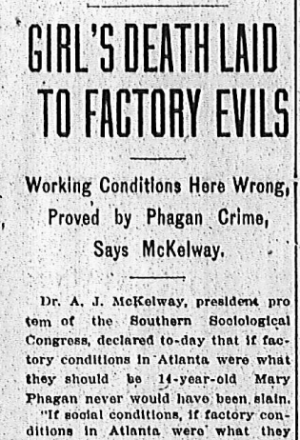
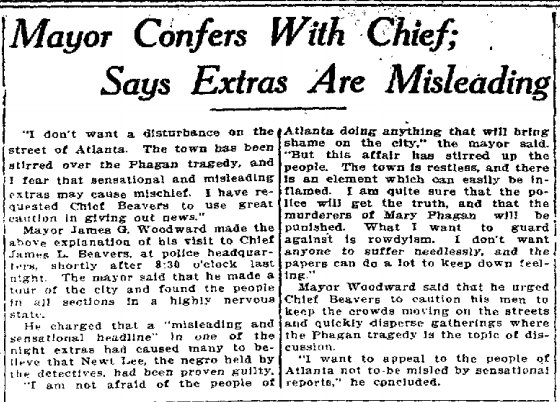
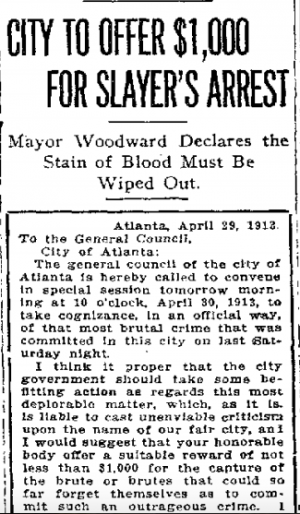
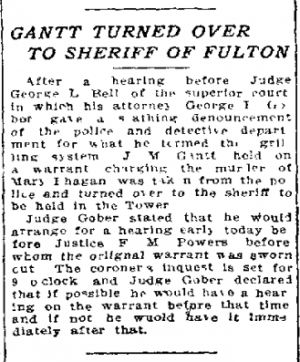
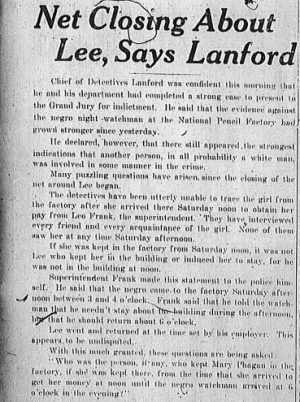

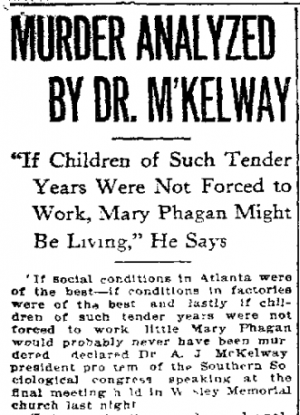
![Gantt reading murder warrant [John M. Gantt was a family friend of Mary Phagan's and was accused of being "infatuated" with the young girl. He was let into the factory on Saturday to retrieve pairs of shoes he had left there prior to his leaving the company. Newt Lee accompanied him as he retrieved his shoes and left Saturday afternoon -- Ed.]](https://www.leofrank.org/wp-content/uploads/2016/02/Factory-Employe-May-Be-Taken-Any-Moment-300x483.png)
